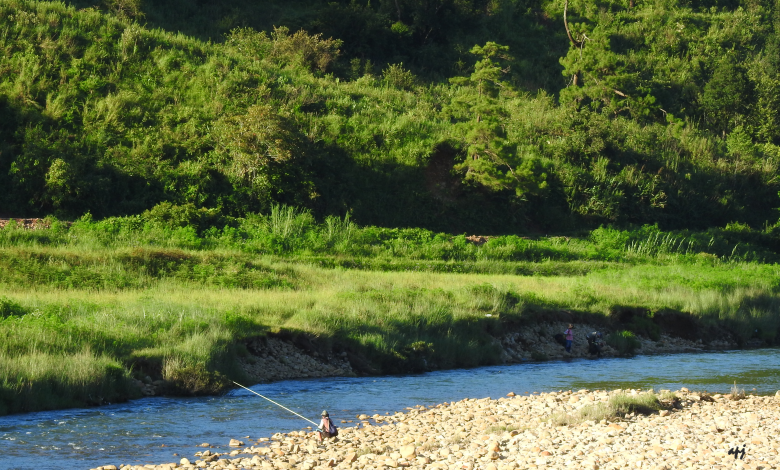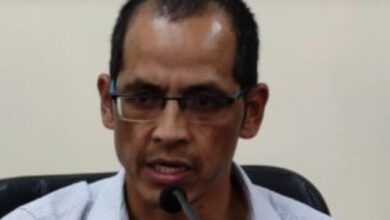Reimagine, Recreate & Restore
It is our responsibility to sustain & nourish the ecosystem in a healthy way, writes ANU P JAMES

June 5 is a significant day to celebrate Earth, our home today, and also to reflect back as we move ahead with nature.
Yet another Environment Day went by while we are still under the cloud of the pandemic. A constant reminder, Covid has been for us to make things right for all, and not just ourselves, it has become to be the question of survival, keeping the future reconfiguring every minute into uncertainties.
How did the WED programmes begin
Post World War II, nature and environment was never even a topic anywhere in the horizon. It was the mad race and focus for development to gain dominance industrially and in trade. Technology was moving faster than ever into applications which needed resources to be converted into products and services. Unfortunately, this has resulted in a never-before-seen scale of natural degradation of forests and resources. Slowly it started to dawn on us that this level of degradation and depletions were not the right thing and indeed it was creating our own peril. The United Nations Stockholm Conference of 1972 was indeed a landmark event in the whole environmental landscape as the world over leaders began to take the environment seriously.
India was no way behind and surprisingly our then Prime Minister Indira Gandhi herself represented our country in the conference which was rare for a country head back then and there came in the hard-hitting reality statement, “Poverty is the greatest polluter”.
From then on, we have evolved and maybe now, things have changed to become “Greed and pride had become the greatest polluters” with the poorest of the poor and the marginalised becoming the ultimate victims while scrambling for their survival.
It was in this very same conference that a dedicated day for the environment was established. Each year there is a theme, a focus, city or country and a forum for all the multiple stakeholders to come together for the cause of the environment on World Environment Day. The very first event was held in 1974 at Spokane, United States, with the theme “Only one Earth”. From then on, the celebrations were held at various locations around the globe with many different ever pertinent themes on water, seas and oceans, deserts, forests, species, wildlife, plastics and so on. For instance, in 1979, the theme adapted was ‘Only one Future for our Children: Development without Destruction’. The children then have now become adults but even after almost half a century still, it is a relevant theme of ‘Only One Earth and Only One Future for Our Children of now- a journey of development without destruction’
.
The Present Day
According to the United Nation Environment Programme (UNEP), every three seconds the world loses forests the size of a football pitch. Over the last century, half of our wetlands and coral reefs have disappeared. These are just a few examples of the plethora of destruction we did to nature. Also, sadly pandemics like Covid-19 are a stark reminder of the increasing risks we face, by increasing the interface between wild animals, as we mercilessly destroy, shrink and fragment their natural habitats.
The World Environment Day this year focuses on ecosystem restoration with the theme ‘Reimagine Recreate Restore’ as the United Nations embarks on a Decade of Ecosystem Restoration (2021-2030). Our restoration journey is a journey from exploitation of nature to its healing by preventing, halting and reversing the agents and effects of destruction. Ecosystem involves us all as it is the interaction between living beings including plants, animals and our own surroundings including the modified ecosystems we have built as cities, towns or villages.
How to craft the days ahead?
With the multitude of challenges in the backdrop and forefront — such as climate change and its effects — the focus on restoring the lost wealth and rejuvenating the frail ecosystem is on a massive scale. This will have to translate into repairing billions of hectares of land area greater than the size of China or the US, reviving back the species of flora and fauna on the brink of extinction while securing the ones we have and letting them flourish in the best of the conditions.
Calls out to each of us to imagine, reimagine without limits the impact, both positive and negative, which we can make on the ecosystem. Take actions at individual levels and in our own reaches. Greening our cities and surroundings, cleaning up our rivers and streams come down to actions at individual and group levels like planting and caring for trees, picking and disposing of our trash properly to prevent the soil and waterways getting toxic and polluted or contaminated to untoward effects on these ecosystems. As our dear president and leader Dr. APJ Abdul Kalam reminded us, it is a crime to think and imagine small when we can spread our wings and do bigger things.
UNEP says every one dollar invested in ecosystem restoration is expected to give returns of $7-30. Some countries of the likes of Costa Rica have already invested in ecosystem restoration as a strategy for bouncing back from Covid-19. Thus, economically and socially it makes sense for us to move ahead in this restoration journey. The act of recreation and restoration can be at our own levels and boundaries to start off with.
Let us observe our own ecosystems carefully and imagine how our presence and actions are impacting in a good or a bad way to the ecosystem’s health. Remember Earth and its ecosystem has been nourishing us and it is time we start to seriously make choices, act and educate to share this to the benefit of our ecosystem and all in it. This global movement of restoring every continent and ocean requests the whole citizens of the world to play our part. Each one of us is significant and can make a positive difference in our collective mission of restoring the planet’s health. It is our responsibility at all ages to sustain and nourish the ecosystem in a healthy way so it flourishes along with us to have a full quality life.
The United Nations Decade on Ecosystem Restoration is our opportunity to act now to re-establish the balance and the peace with nature. We cannot afford to fail in this mission and I hope each of us alongside various departmental and organisational efforts will work towards a goal of thriving ecosystems all around us.
(The author is an officer of the Indian Forest Service and currently working as Divisional Forest Officer, Khasi Hills Wildlife Division, Shillong. Views expressed in this article are her own)
Photo by author





